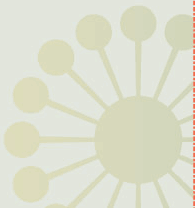A VIEW
FROM THE DONKEY'S BACK Jesus knew precisely where he was going on that first Palm Sunday. The events of the past three years pointed inevitably to this week. It was a script that had been written centuries before by the prophets and all Israel knew how the drama would play out. They just weren’t sure if this was indeed the real performance. Jesus knew. He sent his disciples to start gathering the props."Go into the village ahead of you, and as you enter it you will find tied there a colt that has never been ridden. Untie it and bring it here. If anyone asks you, "Why are you untying it?" just say this, "The Lord needs it." And, of course, the owners did ask, and they were told, and they knew. Everything was carefully staged. The Old Testament provided detailed instructions. Zechariah had written: Rejoice greatly, O daughter Zion! Shout aloud, O daughter Jerusalem! Lo, your king comes to you; triumphant and victorious is he, humble and riding on a donkey, on a colt, the foal of a donkey. The welcoming of a monarch had its precedence in the second book of Kings when Jehu was anointed: "Then hurriedly they all took their cloaks and spread them for him on the bare steps; and they blew the trumpet. . ." So now the curtain rises and Jesus comes on the stage for the final
act.
As he was now approaching the path down from the Mount of Olives, the whole multitude of the disciples began to praise God joyfully with a loud voice for all the deeds of power that they had seen, saying,,”Blessed is the king who comes in the name of the Lord! Peace in heaven, and glory in the highest heaven!” What did Jesus see from the back of the donkey as he made his way down from the Mount of Olives into the Kidron Valley to the entrance of the city? Was he looking back to the past, to the Old Testament and the prophecy that he was to fulfill? Was he looking at the present, at the cheering crowds and thinking, “They really don’t know, do they?” As he passed Gethsemane and saw the peaceful garden to his left, was he looking to the future and thinking about what was to occur later that week and the agony of soul that he would endure in this place? The past has so much of a grip on the present.
Sometimes we just can’t seem to shake it, or escape from it. We try to recapture
the pleasant experiences, the fragments of memory of those dear to
us, the good things that have happened which brighten our lives and
fill us with hope. But all too often it is the dark part of our past
that intrudes, shadows of what might have been, deeds undone that
could have made a difference in our future, roads not taken, persons
unloved, relationships allowed to deteriorate. There are acts which
we regret, sins confessed over and over again because we cannot forgive
ourselves and don’t believe that God will. We shackle ourselves
to our memories and bear our past into our future carrying the weight
of that which we would just as soon unburden. Lead, Kindly Light, amid the encircling gloom, Lead Thou Me on; The night is dark and I am far from home, Lead Thou me on. Keep Thou my feet; I do not ask to see . . . The distant scene; one step enough for me.
God gives us enough light to take the next step and to hope. So Paul
could also write, We walk by faith and not by sight. Jesus saw the
palm waving crowds and heard the shouts of joyous acclamation. But
did he really hear the cheers? There are times, even in the midst
of rock concert, when the applause becomes just a dull background
noise and our mind focuses elsewhere. One could be in a room full
of people talking without speaking, people hearing without listening.
How do we avoid the monotony of living, the slow drudgery of measuring out our lives in coffee spoons, of living in fear of disturbing the universe? Jesus saw not only saw Israel's past, and the second act of the drama that would unfold throughout the week, but he also knew how the play would end. He could see the light streaming into the tomb. Did Jesus have any doubts about his own resurrection? Most certainly he did. The agony of Gethsemane testifies to that. Faith is not knowledge, but trust. It is walking into the dark believing that God will provide enough light to see the next step. It is confidence that the end of the drama has already been written and that the universe is unfolding as it should. The view from the donkey's back was one tragedy and triumph, of tears and celebration, of pain and promise, of despair and hope. When we look at all of life we will see that all is necessary. When we look beyond this life we will see that we are all held within the palm of God's hand. Let us take the longer view from the donkey=s backCour salvation has indeed drawn near. -Harry Serio |
|
